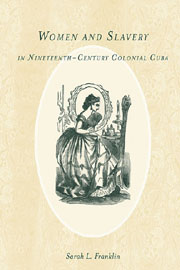Book contents
- Frontmatter
- Contents
- List of Illustrations
- Acknowledgments
- Introduction: Patriarchy, Paternalism, and the Development of the Slave Society
- 1 Virgins and Mothers
- 2 Wives
- 3 Pupils
- 4 The Needy
- 5 Wet Nurses
- Conclusion: A Shifting Landscape
- Abbreviations
- Notes
- Bibliography
- Index
- Rochester Studies in African History and the Diaspora
4 - The Needy
Published online by Cambridge University Press: 05 February 2013
- Frontmatter
- Contents
- List of Illustrations
- Acknowledgments
- Introduction: Patriarchy, Paternalism, and the Development of the Slave Society
- 1 Virgins and Mothers
- 2 Wives
- 3 Pupils
- 4 The Needy
- 5 Wet Nurses
- Conclusion: A Shifting Landscape
- Abbreviations
- Notes
- Bibliography
- Index
- Rochester Studies in African History and the Diaspora
Summary
Feed the poor, … and the orphans that misery leads to the most shameful vices, [so that they] will be useful citizens, they will be good mothers, [they will be] servants of both sexes in houses.
—Luis de Las Casas to the King, 1792The maintenance of the nineteenth-century Cuban slave society required strict social control, and it did not begin with adult-age women but rather with young girls. Through benevolence in the form of institutionalized charity and direct response to individual incidences, the state effectively secured those individuals who did not occupy their preordained position in society, while maintaining the hierarchal ordering of the slave society. Such activities provide insight into how the instillation of ideas regarding familial ordering into young girls and women ensured the future of the plantation society.
The Casa de Beneficencia
Elites who dominated the government and institutions such as the Sociedad Patriótica controlled nineteenth-century Cuban society, and they had much vested in the idea, establishment, and acceptance of a certain social structure. The Sociedad Patriótica desired to guide the evolution of the island so that Cuba would become the world's leading sugar-producing colony, thus enriching the coffers of its members; and the Sociedad believed education was the key to creating useful citizens who would contribute to their vision. Education would provide for the eradication of poverty, vice, and vagrancy, issues the Sociedad viewed with great concern.
- Type
- Chapter
- Information
- Women and Slavery in Nineteenth-Century Colonial Cuba , pp. 102 - 124Publisher: Boydell & BrewerPrint publication year: 2012

